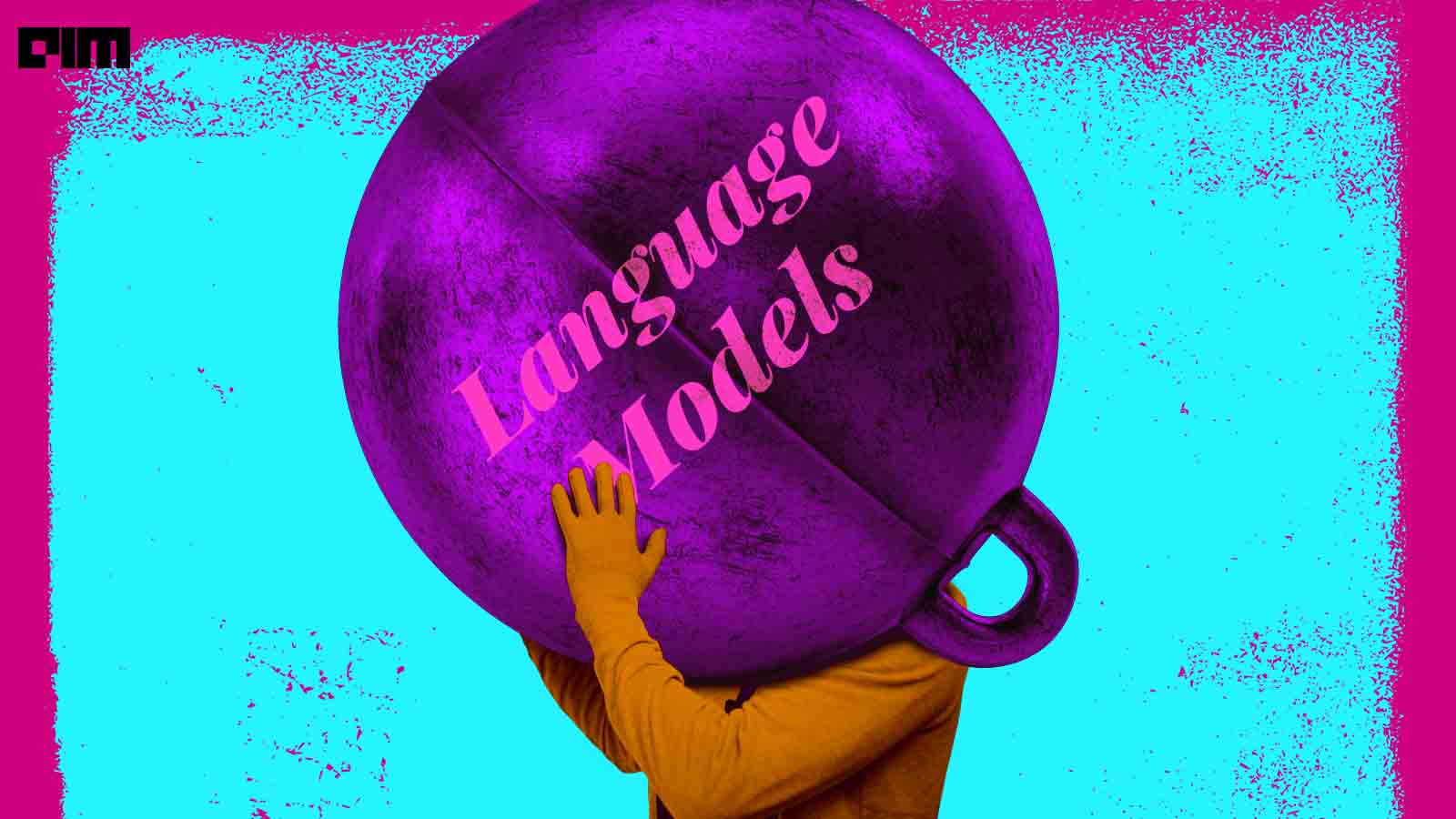In an era of language models, small language models (SLMs) represent a pivotal advancement in natural language processing, offering a compact yet powerful solution to various linguistic tasks.
Most companies are into developing SLMs for their accessibility, computational efficiency, and adaptability, making them ideal for deployment in edge devices and cloud environments, fostering a new era of natural and intuitive human-computer interaction.
At Ignite, Microsoft CEO Satya Nadella, famously said, “Microsoft loves SLMs”, which was quite a kickstart for the other SLMs too. We have compiled a list of the best small language models introduced in 2023. Here they are:
Llama 2 7B
Llama 2, Meta AI’s second-generation open-source large language model, released in July, has an impressive 34 billion parameters, and the smaller 7 billion model was made specially for research purposes. It significantly enhances the model’s performance, efficiency, and accessibility compared to its predecessor.
With demonstrated text generation, translation, and code generation improvements, Llama 2 caters to a wide array of NLP tasks. The model’s multilingual capabilities and availability of fine-tuned versions for specific tasks, such as Code Llama, broaden its applications from machine translation to chatbots and content creation.
Many of the current open-source models are built on top of the Llama family of models.
Phi2 and Orca
At Ignite 2023, Microsoft announced its latest innovations in small language models, introducing Phi-2 and Orca. Phi-2, the newest iteration in the Phi Small Language Model (SLM) series, boasts an impressive 13-billion-parameter capacity and is tailored for enhanced efficiency and scalability.
Phi-2, tailored for edge devices and the cloud, excels in text generation, language translation, and informative question-answering. Trained on GPT-4 signals, Orca stands out in reasoning tasks, offering clear explanations. Phi-2 and Orca are a step towards epitomising Microsoft’s commitment to advancing small language models, promising a revolution in natural and accessible computing.
Stable Beluga 7B
A 7 billion parameter language model, leveraging the Llama model foundation from Meta AI and fine-tuned on an Orca-style dataset, exhibits robust performance across various NLP tasks, including text generation, translation, question answering, and code completion.
Stable Beluga 7B understands and responds in multiple languages, enhancing its global reach and applicability. The model’s future promises further performance enhancements, increased adoption and integration, the development of specialised versions, and continued contributions to the open-source community.
X Gen
X Gen, a 7 billion-parameter small language model (SLM) pioneered by Salesforce AI, primarily focuses on dialogue and diverse tasks such as text generation, translation, and code completion. With a compact size of 7 billion parameters, X Gen offers computational efficiency, facilitating broader deployment.
Boasting multilingual capabilities and continuous development efforts by Salesforce AI, X Gen emerges as a valuable tool with applications ranging from creative writing and content creation to software development and language learning.
Alibaba’s Qwen
Alibaba has recently released its Qwen series, which stands out as a formidable family of language models. With various models differing in parameter sizes and functionalities, the series caters to diverse applications such as text generation, translation, question answering, vision and language tasks, and audio processing.
The key features of the models include high performance, multilingual support, and open-source availability, making them accessible for researchers and developers. Alibaba’s Qwen series includes Qwen-1.8B, Qwen-7B, Qwen-14B, and Qwen-72B.
Alpaca 7B
Alpaca 7B, a finely tuned replication of Meta’s 7 billion-parameter LLaMA model, is renowned for its remarkable compactness and cost-effectiveness, requiring less than $600 in building costs. Despite its small size, Alpaca 7B has demonstrated noteworthy performance, rivalling that of larger models in certain tasks.
This affordability and efficiency make Alpaca 7B an accessible option for various applications, showcasing the potential for impactful advancements in natural language processing within a budget-friendly framework.
MPT
A 7-billion-parameter small language model by Mosaic ML stands at the intersection of code generation and creative text formats, delivering specialised functionalities for programmers and artists alike. Designed to enhance productivity, MPT excels in generating precise code snippets, automating tasks, and inspiring artistic expression through various creative text formats.
Its potential applications span software development, creative writing, content creation, education, and accessibility tools, showcasing MPT’s adaptability and promise in contributing to both technical and creative domains.
Falcon 7B
Falcon 7B, crafted by the Technology Innovation Institute (TII) from the UAE, represents a standout addition to the Falcon series of autoregressive language models, celebrated for their outstanding performance. Tailored for efficiency in straightforward tasks such as chatting and question answering, the 7 billion-parameter model is optimised to handle a vast corpus of text data, encompassing approximately a trillion tokens.
The Falcon models have been on the top of the Hugging Face leaderboard for the longest time since they were released, and the open-source community has worked with them.
Zephyr
Crafted by Hugging Face, Zephyr is a 7 billion-parameter small language model (SLM), emerging as a powerhouse for engaging dialogues. It is designed as a fine-tuned version of the Megatron-Turing NLG model and inherits robust capabilities for generating natural and captivating language.
Focusing on dialogue interactions proves ideal for chatbots, virtual assistants, and various interactive applications. Its compact size ensures computational efficiency, making it deployable across diverse platforms. Zephyr’s training on a diverse dataset enables it to understand and respond in multiple languages, amplifying its global applicability.
The post 9 Best Small Language Models Released in 2023 appeared first on Analytics India Magazine.



![[CITYPNG.COM]White Google Play PlayStore Logo – 1500×1500](https://startupnews.fyi/wp-content/uploads/2025/08/CITYPNG.COMWhite-Google-Play-PlayStore-Logo-1500x1500-1-630x630.png)